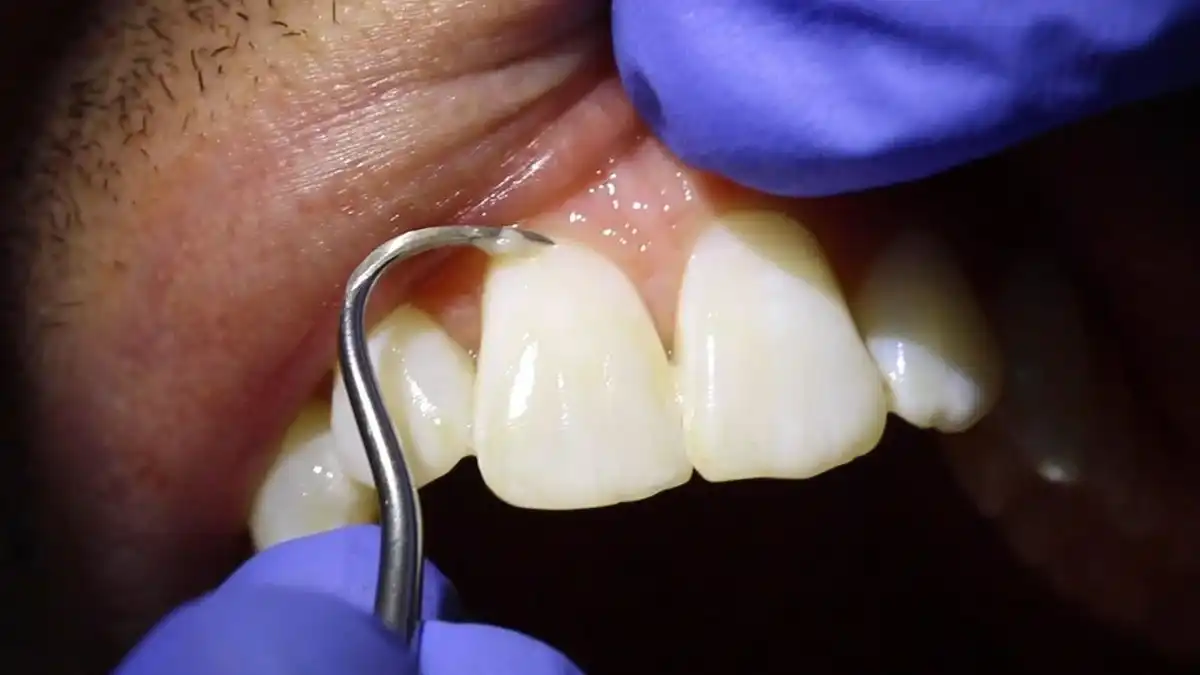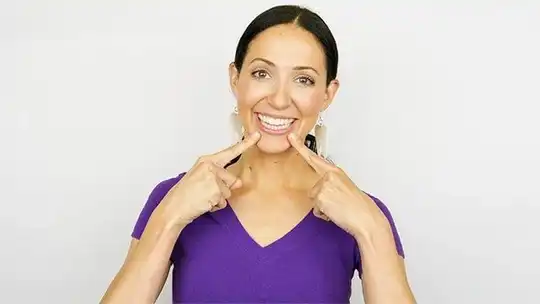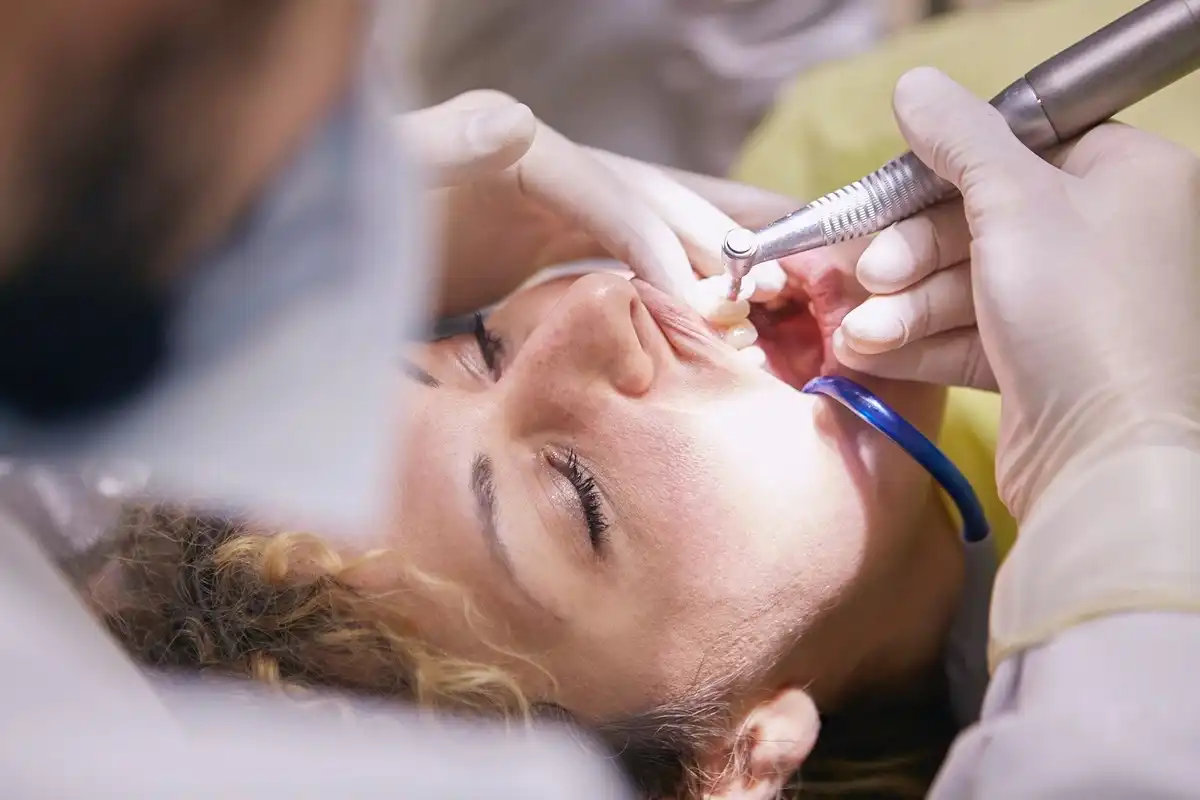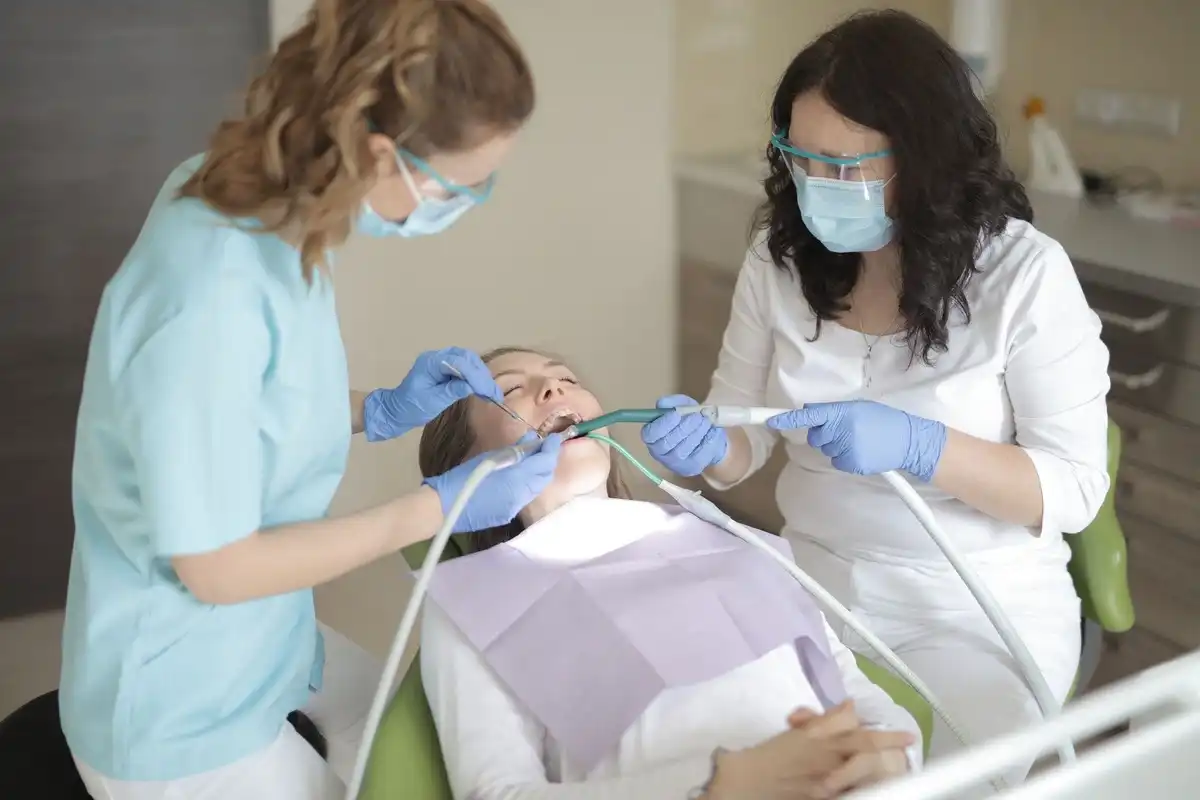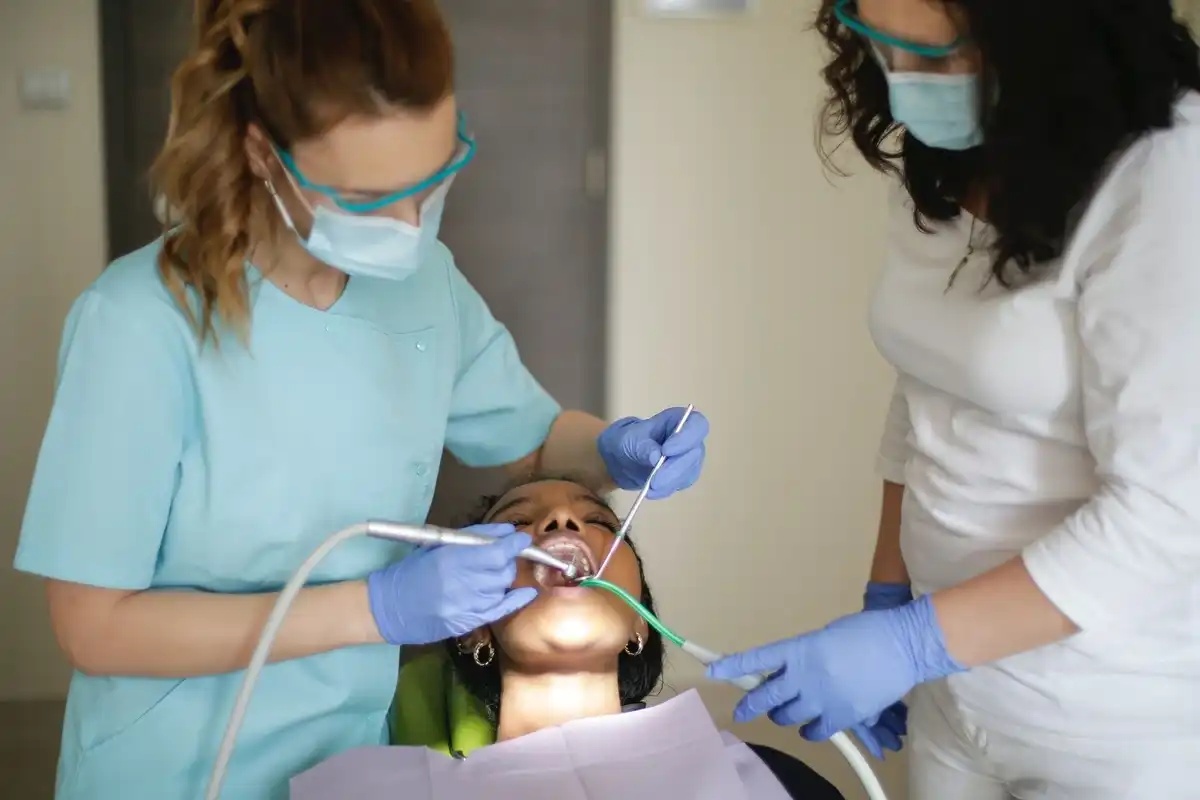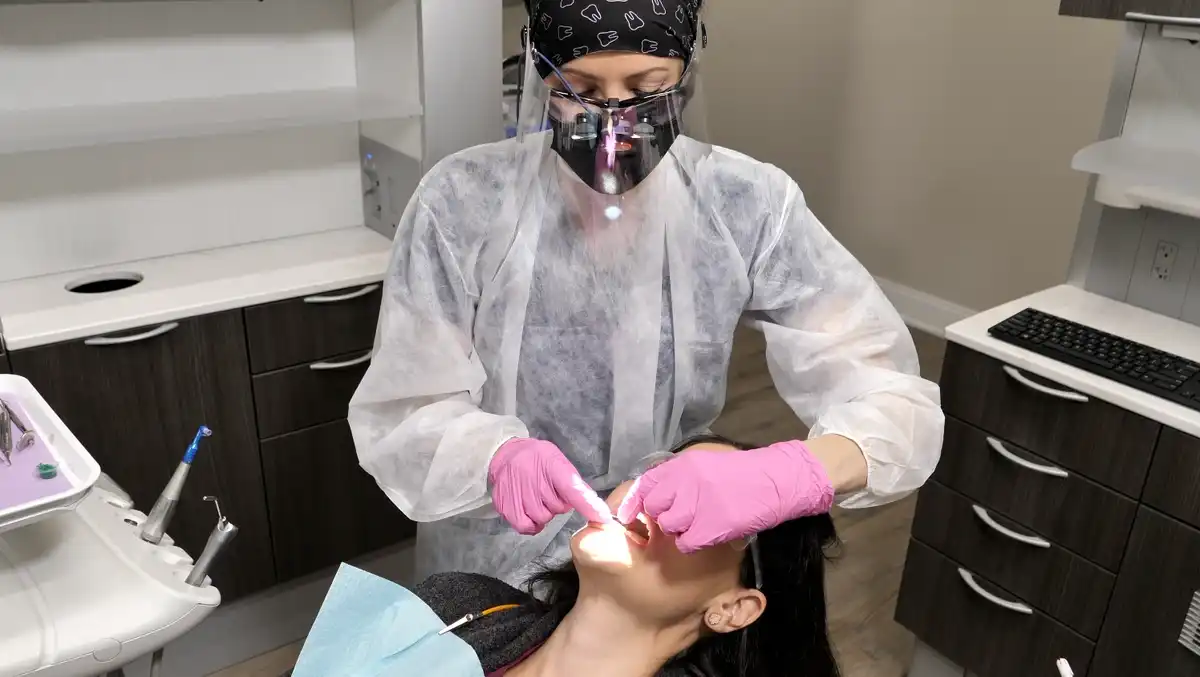Dental Schooling, Programs & Requirements


Are you thinking about going to dental school? Knowing what the various dental school requirements are from the various dental programs out there will help give you an edge when it comes to getting in and completing your dental schooling.
Becoming a dentist offers a lot of advantages over other doctoral training, such as choosing to be a medical doctor. One of the reasons why dental programs are so popular is not just because people love the idea of dentistry, but because of the work-life balance that it offers. Dentists traditionally work normal business hours, not long night shifts in an ER or lengthy “on call” days on the weekends.
But to become a dentist, you need to get into one of the accredited dental programs and complete a 4-year dental degree (DDS or DMD) on top of meeting your pre-dental school requirements (which usually consist of a bachelor’s degree.) In theory, you’re looking at a minimum of 7-8 years in college before you qualify to become a dentist. Some people are admitted into dental programs without a degree, but they will have at least three years’ worth of courses in chemistry, biology, and similar sciences. The key is to look at the dental school requirements and get those courses out of the way before you can even apply. Dental programs will not admit you unless those classes are complete before you begin your dental schooling.
Types Of Dental Schools
During your application process, you may want to consider some of the following types of colleges throughout your educational journey:
1) Community Colleges
While you can’t go to dental school at a community college, you can get some of your dental school requirements out of the way that you need for applying to dental school. Such as your basic-level chemistry, biology, and psychology classes. You might even need a speech class and math or statistics. Keep in mind that you’ll want to attend an accredited community college and make sure the courses are the same ones required by the dental school you’re planning to attend. Most of the basic sciences will require a lab component and need to be tailored to “healthcare professionals”, so make sure you’re not taking one that’s labeled for non-healthcare (check with your college.)
2) Four-Year Schools/Universities
Every dental program will be part of a university system, as they are post-graduate degrees similar to an MD. Most of your dental school requirements will also call for extensive science coursework, where the prerequisites need to be taken on the 4-year university level as opposed to a community college.
Most, but not all, dental school applicants will already have a full four-year degree from an accredited university when they’re admitted into dental school. Some might even be second-degree learners who hold master’s degrees in other fields. You will also have a small percentage of applicants who focused primarily on their prerequisite courses and made it into dental school with a few years of college under their belt, but no undergraduate degree just yet.
3) Other Dental School Options
If you’re not quite sure you want to become a dentist, you may want to consider an alternative like dental hygiene or dental assisting first. Accelerated vocational programs for dental assistants can put you in the dental office within a matter of weeks. Some dental assistants can even train on the job, without going to college at all.
Or you can take things up a level, and go to dental hygiene school before becoming a dentist. Dental hygiene programs are 2 or 4-year degrees that can be completed at credentialed colleges and universities throughout the country.
4) Online Dental Schools
During the pandemic and nationwide shutdown, some dental students found themselves taking classes online for the first time. Any online dental schools will still require clinical hands-on training. The exception is those courses that may not have a clinical component to them, which are few and far between. In other words, don’t hold your breath looking for an online dental school program.
HOWEVER: you can take some of your prerequisites online, as long as they meet your dental school application requirements.
Find A Dental School
Program Must-Haves
Dental school requirements are extremely strict. Without meeting specific criteria, graduates are not eligible to become licensed dentists.
First, make sure you’re applying to a dental program that is accredited by CODA (the Commission on Dental Accreditation.) Being CODA Accredited means that the program meets all of the requirements set forth by the American Dental Association (ADA) and that graduates are eligible to sit for board exams to become licensed dentists. Without this label, you may spend time in school without ever qualifying to actually become a dentist. Newer dental schools usually have some type of a temporary or pending disclaimer, so be extremely careful once you start the application process.
Every dental school will require both lecture and clinical courses for students. You might not even start seeing patients for everyday dental treatment until the end of the second or the start of your third year in dental school.
You will be in dental school for a total of four years. Typically, there is a full-time requirement so you will not be able to go on a part-time basis while also working a job. Going to dental school is your full-time job. Residencies after dental school are not required, unless you plan to specialize in a particular area of dentistry, such as orthodontics, Endodontics, periodontics, etc.
Licensing Path To Become A Dentist
Every dental student that graduates from a 4-year dental school and then passes their board exams is eligible to become a licensed dentist. However, your exact path to a dental license will depend on which state you live in and where you plan to practice. Your state dental board may require special add-on certifications in addition to your degree to acquire licensure. Such as a jurisprudence exam, CPR, sedation monitoring, and controlled substances credentials.
As you’re nearing your fourth year in dental school, you will want to make sure you review the criteria for your state licensing practices so that you have everything lined up to apply for your license once your board exam scores come back.
Dental School Requirements
How do you get into dental school in the first place? By meeting all of the prerequisites (classes required to enter dental school) and having a competitive application. Getting into dental school can be hard, to put it mildly. Most students will want to apply to multiple dental schools to improve their chances of getting into one at all. Fortunately, there are some things you can do to set yourself apart from other applicants trying to get into the same school. The higher your application ranks, the better chances you have of being admitted.
1) General Education
Make sure you knock out all of your required classes with the highest GPA possible. While it may not be as important to get an A in something like speech or psychology, you definitely want good grades in all of your sciences. Dentistry is science-based, so you’ll be taking a lot of chemistry, biochemistry, biology, and physics classes. Those are the grades that are going to usually have more weight when it comes to getting into dental school. Whether or not you have a complete 4-year degree at the time you apply may not necessarily matter as long as all of your prerequisites are complete. One important note: some schools have slightly different academic requirements than others, so read the descriptions carefully!
2) Work Experience
Do you need to have a certain type of work experience to get into dental school? Nope. Some people even come from non-science, non-healthcare backgrounds to go into dentistry as a second career. And then you’ll have people who were already dental hygienists or assistants before applying because they decided they loved dentistry so much that they wanted to go back to school.
Even though you don’t need to have worked in the dental field, you will need to show that you have some type of shadowing experience. Shadowing is where you go in and observe a dentist to get a first-hand look at everything they do. The more shadowing and the wider variety you have in your shadowing experience, the better!
3) Dental Admissions Test
As part of your dental school application, you’ll want to have a high DAT score. The dental admissions test or dental aptitude test (DAT for short) is almost like taking your ACT or SAT but on a higher scientific level. You’ll be tested in perceptual abilities, quantitative reasoning, sciences, etc. It’s similar to how aspiring medical students have to take the MCAT for medical school admissions, only this test version is specifically for dentistry.
4) Previous Transcripts
If you’ve taken various prerequisite classes at a community college or a local university, make sure you have everything lined up and sent directly to each dental school you’re applying to. These need to be official digital or sealed physical transcripts directly from your previous college’s admissions office sent to the dental admissions office. You can’t use copies or scans; these need to be official. Make sure you list each school on your dental application so that nothing accidentally gets left out.
5) Letters Of Recommendation
Although not required by every dental school, some universities ask that applicants send letters of recommendation along with their application. There may be certain requirements, such as they’re sent directly by the person writing them or provided by the applicant in a sealed envelope.
Letters of recommendation may need to come from current dentists, such as those that you shadowed under, or professors where you’ve taken your science coursework. They should not be from a personal friend or family member. Check your dental program’s criteria on which type of recommendations are required, if applicable.
6) Application Information
Finally, you have your basic dental application. In addition to routine personal information like your name and address, you’ll probably also have to write a few essays. It’s best to have these looked over by at least 3-4 other individuals before submitting them because you want your application to be perfect.
Make sure you’re meeting the deadlines, as there are likely apply-by dates. If you don’t, you won’t be considered because there are already so many other people applying before you.
Some schools will also offer interview opportunities as part of their vetting process to rank applicants for admissions.
Dental Degrees
There are two different types of degrees that you can get to become a dentist. One is a Doctor of Medicine in Dentistry (DMD) and the other—and most popular—is the Doctor of Dental Surgery (DDS) degree. Both DMD and DDS dental degrees require four years of dental school to earn, and both take the same board exams upon completion of school to earn a license to become a dentist. However, the difference in a DDS and DMD degree is even less than that of a Medical Doctor (MD) and Doctor of Osteopathic Medicine (DO) degree, of which both allow you to become a licensed family physician.
DDS Degree
If you’re considering going to a DDS school, your undergraduate degree will probably be focused on “pre-dentistry” as opposed to specifically tailored to a DDS, as both DDS and DMD schools typically call for similar prerequisites.
Although DDS colleges are more common than DMD programs, one is not necessarily “better” than the other. They both provide the same level of education and training, it’s just that the name of the formal degree being awarded is worded slightly differently. Since DDS is the most well recognized, the majority of newer dental schools choose to label their degree as DDS as opposed to DMD.
DMD Degree
The other—and less common—type of dental degree that dentists can earn is a DMD. You can call it a Doctor of Dental Medicine, or you can go back to the original Latin where it’s called the “Dentariae Medicinae Doctor.”
The DMD vs. DDS “dilemma” (if you want to call it that) originally goes all the way back to 1867. When Harvard University instituted a dental degree, the degree that was earned was versed in Latin, as all of their other degrees were. But Doctor of Dental Surgery translated into Latin is a bit of a mouthful, so instead, they used verbiage similar to the Medical Doctor degrees, with a Latin word used to describe dentistry. In this case, “Dentariae Medicinae Doctor.” In other words, a DMD degree.
Although the DMD degree originated at an Ivy League school, it does not necessarily make it a better degree than a DDS. Both DMD and DDS degrees are essentially, and respectively, equal to one another and consist of the same level of education. To call DMD better than DDS because it has “MD” in the total is irrelevant. Some people actually find it confusing, as they may not realize a DMD is the same thing as their licensed family dentist. Especially if there are no other DMDs in their area or they’ve never seen a DMD. In reality, they’re basically one and the same.
Dental Degree Coursework
Whether you choose to get a DDS or DMD degree is up to you and where you’re admitted to dental school, as the application process can be quite competitive. In either scenario, you’ll be studying the same areas of dental sciences, including:
Anatomy—Both oral and overall human anatomy are an essential aspect of dentistry. From where every muscle and nerve are located to a complete understanding of the human body, dentists will gain an intricate knowledge of anatomy.
Physiology—The complex organ systems inside of our bodies are closely related to that of our mouths. Dental students will study how the body’s physiological, chemical, and physical functions impact and control our overall homeostasis.
Embryology —Embryology is the biological study of prenatal development, including the growth and formation of teeth. Tooth morphology spans several years of each person’s lifetime, hence why a deep understanding of tooth embryology is crucial to becoming a dentist.
Biochemistry—Understanding how the body’s chemical processes impact muscles, glands, nerves, tissues, and other structures of the body plays deeply into the treatment and management of oral diseases and preventative care.
Microbiology—Specific microbes/microorganisms deeply impact oral health and the development of diseases, such as tooth decay and periodontitis (among others.). Identifying and understanding microbiology as it impacts teeth helps better the health of dental patients.
Pharmacology—Dentists need to know how prescription medications can help treat, manage, or impact both the teeth and body as a whole. These classes cover the chemistry and biochemistry of how medicines impact one another and the human body.
Oral Anatomy—In addition to full-body anatomy, oral anatomy—including the shape and placement of each tooth root and cusps on teeth—will need to be understood. It’s not uncommon to hear about dentists having to draw or carve models of specific teeth. In fact, a dentist (or hygienist for that manner) should be able to see any tooth sitting on a tray and know which specific one it is!
Occlusion—The way teeth fit together and align throughout the mouth will ultimately impact oral function, speech, TMJ movement, swallowing, and more. Adjusting growth patterns and tooth positioning can better the overall wellness of patients when managed properly. This can also include the jaws and management of sucking habits as they relate to oral development and function.
Diagnostics—A dentist should have proper diagnostic processes and thought patterns that they follow in regard to identifying diseases and treatment planning. As in medicine, dentists “practice” their care on patients, since diagnostics may not always be black and white.
Oral Pathology —Understanding how diseases present themselves inside of the mouth allows dentists to screen for and identify symptoms (including oral cancer) that patients may be unaware of. Dentists are trained to identify abnormal and precancerous tissues to make patients aware of abnormalities in the case a biopsy or medical referral is required.
Oral Histology—Histology is the study of the various cells and functions that make up the soft tissues throughout the mouth. From the cells and attachment ligaments to saliva production, each type of oral tissue is inspected at an extremely high microscopic level.
Operative Dentistry—This is what most people think about when they’re talking about dental school. It is treating defects (like cavities or fractures) in tooth enamel and the other hard structures that make up the teeth. In other words, placing dental fillings, crowns, bonding, veneers, etc.
Periodontics—Gum disease involves the tissues surrounding the roots of teeth, including soft tissues (gums) and the bone adjacent to them. We also know that managing periodontal infections is vital to improve overall wellness.
Endodontics—This aspect of dentistry is where the inside of the tooth is treated, due to dying nerves or dental abscesses. It typically involves removing the nerve from the inside of the tooth, cleaning out the canal, and sealing it off to prevent recurring infections.
Prosthodontics—Restoring a person’s bite with removable prosthetics (such as dentures and partials) or multiple fixed restorations requires intricate attention to detail to the mouth as a whole.
Oral Surgery—Beyond treating the teeth above the gumline, surgical intervention can include things like wisdom tooth removal, extracting teeth, and placement of dental implants.
DAT Exam
The DAT exam (Dental Admissions Test or “dental aptitude test”) is an entrance exam that dental programs use to rate and admit their program applicants. It’s used nationwide and accepted by most American dental schools as well as some in Canada. You typically take it at a testing center and can schedule the date you’d like to take it (it’s offered year-round) but you may only be allowed to test up to a certain number of times.
While the DAT does assess your basic knowledge of life sciences, it also measures your perceptual abilities and quantitative reasoning skills. In other words, all of the things you need to become a great dentist!
The DAT is multiple choice, and you can find review books out there to help you prep for your exam ahead of time. The more competitive your DAT score is, the better.
NBDE Board Prep
One of the final phases of dental schooling is taking your National Board Dental Examination (NBDE). These board exams are the final tests taken by every soon-to-be dentist, regardless of which dental programs they attend. Be on the lookout for board prep programs or board prep review books to help you study. You’ll probably find yourself using plenty of flashcards and forming a study group with other dental students to prep for your board exams.
Not to scare you, but these exams are extremely long and will cover all of the important information you’ve learned while you’re in dental school. It is a two-day written exam, so you’ll be sitting and staring at hundreds of questions for an extended period of time.
Dental Schooling Recap
To become a dentist, you need to find accredited dental programs to apply to and meet all of the dental school requirements before you apply. Including prerequisite classes and applicable entrance testing/DAT exams. Once you’re in, you’ll spend four years studying in-depth patient care practices (as well as other dental schooling requirements) before you’re ready to take your board exams. But once you’re out and you’ve passed all of your tests, you’ll be ready to become licensed and practice independently as a DDS or DMD, assuming you meet all of your state’s “extra” requirements, if applicable.

Make your inbox smile!
Subscribe
